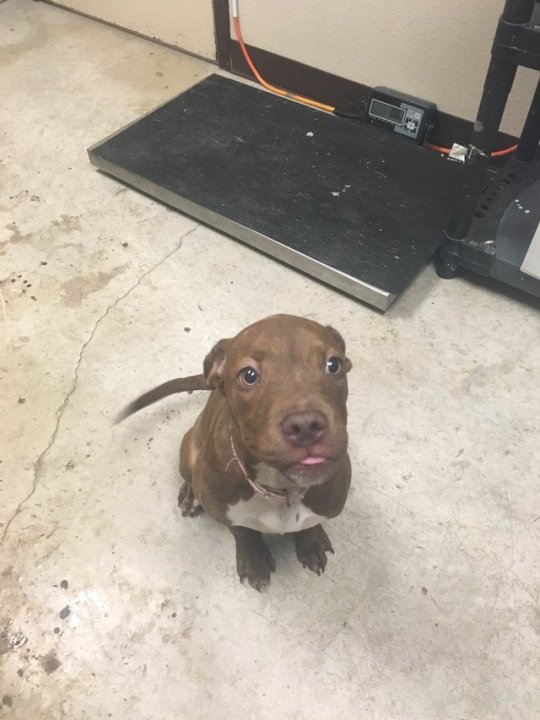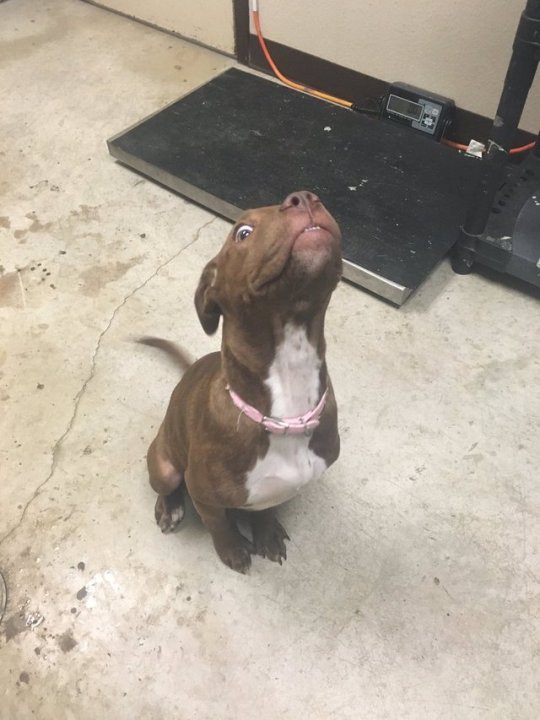Text
WK 11 - Global Social Media
China, to me, has always been the most interesting country to talk about. Isn’t China the country that had that ‘one baby rule’? Is that still even a thing? And apparently they don’t have Facebook or Instagram, etc? Umm. What?! Like how do they even cope? *insert subtle connection to this weeks readings*
Welllll... in this weeks readings we talked about global social media and how it can vary throughout different countries in regards to their different social values or in relation to the case study from this week, China, and how its government has moulded their social media and still do this day, carefully regulates its ‘digital citizens’.
Below is a short video on some basic facts and information on China’s social media usage:
youtube
Stastically speaking, in an article with data referring back to 2011, it found that China had approximately “513 million Internet users” (Chiu, Lin & Silverman, 2012), a number almost eight times the Internet users in a country like Germany where approximately 82% of their population are active internet users.
The conversation about China and their social media is so controversial simply because in comparison to many other countries, Chinas government have completely blocked the major social media platforms, like Facebook/Twitter/Instagram etc. This was done because the government believes that these Internationally popular platforms aren’t abiding by their governments laws and rules, therefore as a result, the people of China have practically created their own versions, of these popular platforms which, in itself, has become an immensely successful creation of their own.
Their versions of the Internationally well-known platforms are:

In a number of articles, it stated that Chinas government is that strict with their peoples use of social media, they have a project on the go, known as the Golden Shield Project which is also called the Great Firewall, which is what controls the governments censorship. It includes “bandwidth throttling, keyword filtering, and blocking access to certain websites.” (Xu and Albert, 2017) If a person were to be accessing Facebook, they would have to go through a VPN, which could essentially get them in trouble with their government and have them at their door arresting them if they were caught.

What else has been pointed out by many Chinese people is that they feel like in the business world, they would rather judge buying a product online that has been positively reviewed by their fellow citizens rather than by a product that is being sold or advertised by the government.
Why is that?
Supposedly, they believe that the information or items that the government advertises, may be subject to more bias than that of another fellow citizen of China!
All in all, China seems like a country I would LOVE to visit but if it means I’ll have to lose my 250 day Snapchat streak, I don’t think I could do it. Plus, if I couldn’t ‘Check in to China’ on my Facebook, does it mean I ever really went?

Sources Cited:
Chiu, C, Lin, D and Silverman, A 2012, 'China's social-media boom', McKinsey and Company, 1 May 2013
Xu, B. and Albert, E. (2017). Media Censorship in China. [online] Council on Foreign Relations. Available at: https://www.cfr.org/backgrounder/media-censorship-china [Accessed 22 May 2017].
#digital citizenship#global social media#swinburne#mda20009#great firewall of china#facebook#ren ren
6 notes
·
View notes
Text
WK 10 - Social Gaming: Playing the Crowd
Gamer? Yeah I’m a gamer. I mean, I guess i’m the kind of gamer to literally NEVER play anything for like months, then one day turn on the Sims 2 and passionately ‘game’ for an intense 8 hours, then give up and close the app for the next year until I’m emotionally ready to face the reality that I genuinely am unfit to raise an online family. :(

The Sims 2 don’t technically classify people as ‘online gamers’, (and neither am I TBH) but another type of online game that has been popular is, EVE Online.
It’s an online game that has “over half a million subscribers” (Zwart & Humphreys, 2014) and really engages their subscribers with their “player council, the Council of Stellar Management (CSM), and active fan forums.” This is essentially a perfect example of online gaming and social media in today’s era and certainly grasps the concept of ‘social media gaming’ as now the players are able to join ‘groups or forums, send requests and communicate with each other’, similar to the function of other social media platforms and it essentially gives them a sense of belonging which consequently creates their own “EVEOnline” sociality group within the ‘social gaming’ sociality.

Similar to this there have been a number of other online games, in example, one that I particularly liked was, Farmville. What was astonishing was that even in 2009, (when the game had only been available to play for two months) it had become the most popular online game on Facebook with around “33 million monthly players” (Lovell, 2009) which meant approximately 10% of all Facebook users at that time, were active Farmville players. It’s argued that the secret to Farmville’s success was also to do with it’s connectivity with other Facebook users; it was possible for people to send free Farmville gifts to other users to attract them to play and reciprocate by sending either an equally or more valuable gift back.

Sources cited:
Lovell, N. (2009). Six secrets of Farmville’s success – and 33 million people agree - Gamesbrief. [online] Gamesbrief. Available at: http://www.gamesbrief.com/2009/09/six-secrets-of-farmvilles-success-and-33-million-people-agree/ [Accessed 20 May 2017].
Melissa de Zwart & Sal Humphreys (2014) The Lawless Frontier of Deep Space: Code as Law in EVE Online' Cultural Studies Review
1 note
·
View note
Text
Wk 9 - Public Health Campaigns & Communities
Ahh ‘being healthy’, yes, I’ve heard of that term. Do I think I’m healthy? Yeah I guess... Am I actually? Well, that Buzzfeed quiz I did last night said I was ‘87% healthy’ so I guess so.
Also me:

I’m sure most of us in this day and age, after one too many coughs and sneezes, jump straight on to Google and search up our symptoms then over-exaggerate and conclude that because of the coughs you muuuust be diagnosed with something like, idk, the Plague.

All jokes aside, the point is, because of the rise of social media and internet use. It’s become accustomed for many people to search up or Google certain things to give themselves information on their health with around “83% of internet users seeking health information online” (McCosker, 2016), instead of having to go through the process of booking a doctors appointment even if it was something little.
Something like a self diagnosis, I would say.
The use of social media has also affected a number of people who have been going through the quite intense and often chronic illnesses, such as Cancer. In an article written by (McCosker & Darcy, 2013) they elaborated on the topic of ‘Cancer Blogs’ and argued that the use of cancer patients, who are obviously going through a difficult and emotional time, that by engaging and consistently writing in these blogs gave the patients a sense of “empowerment” (McCosker & Darcy, 2013) and gave them some sort of emotional/psychological control which would help with their emotional management. Additionally, in more research done, it was identified that “the Internet holds promise, as it can serve as a communication medium for individuals sharing information and emotional support about cancer, empowering cancer information consumers to act as competent social actors, and allowing them to become increasingly involved in their own health care” (Chung and Kim, 2008)
There have been other factors that have been affected because of the rise in social media, for example, the use of hashtags and the viral trends on health issues that can ‘raise awareness’. Obviously everyone remembers the ALS ice bucket challenge, and although a number of people didn’t donate or didn’t know what the challenge was for, it was still brought to the attention of many people and raised millions of dollars.

On another angle however, there are a number of people who argue that because of the rise in social media, there has been a particular rise in mental illnesses, like anxiety and depression. Approximately, “45% of all Australian teens feel that their peers are having more rewarding experiences than them” (Australian Psychological Society, 2015) and due to popular apps like Instagram and Facebook, it was argued that many of the users follow and aspire to be these ‘Internet Famous’ people who ultimately, have these posts to create some sort of ideal or fun lifestyle that is ultimately unreachable and Utopian almost, without taking a number of photos and digitally constructing them to a sort of unrealistic ‘reality’ for the public to aspire towards. Leading to mental illnesses like depression and anxiety because they feel as if they aren’t the ‘ideal or ‘normal’ person.
Sources:
Australian Psychological Society (2015) Stress and Wellbeing: How Australians are Coping with Life, APA, available at: http://bit.ly/1FPnDxS
Chung, D. S. & Kim, S. (2008) ‘Blogging activity among cancer patients and their companions: uses, gratifications and predictors of outcomes’, Journal of the American Society for Information Science and Technology, vol. 59, no. 2, pp. 297–306.
McCosker, A. and Darcy, R. (2013) 'Living With Cancer: Affective Labour, Self-Expression and the Utility of Blogs'', Information, Communication & Society 16(8), 1266-85.
McCosker, A. (2016) 'Digital Mental Health and Visibility: Tagging Depression', in P. Messaris and L. Humphreys, Digital Media: Transformations in Human Communication (2nd edn), Peter Lang.
#public health#health#buzzfeed#cancer#als ice bucket challenge#anxiety#depression#swinburne#mda20009
2 notes
·
View notes
Text
WK 8 - Crowd Sourcing in times of crisis
In a time of crisis or natural disaster, I could only imagine how people would be feeling and what would be going through their mind.
What should I be doing? How can I stay safe? Who can help me?
With all these questions going through their mind, as a media student the first thing I would do, is resort to is my social media accounts for help and I guess I’d try to remain calm????
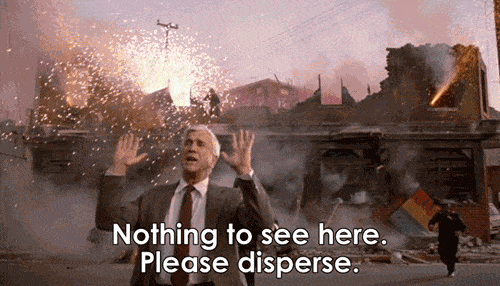
Now days social media has particularly played a huge affect on the wellbeing of many people going through natural disasters or a crisis. To relate to Australia specifically, in 2011, in Queensland, there were the Queensland floods which left “200,000 people affected” (Creighton, 2016) and had the Brisbane City Council have to deal with “AUD $440 million which was spent on the recovery effort” (Creighton, 2016). The people of QLD quickly turned to their social media accounts and a hashtag, #QLDFloods was then made trending on Twitter with “35,000 tweets containing the hashtag” (Bruns, 2012). The hashtag was effectively used as a source of information and helped many of Australia’s Twitter users share information. Approximately, “50-60% of #qldfloods messages were retweets” (Bruns, 2012) which were to essentially share information and regular updates with their followers.
I personally believe this is a great idea, and I’m glad that now if there were any times of crisis, it will be easy to access information. Although, now that I think of it, I don’t actually have a Twitter account and only a handful of Australians do as well, or at least it is common that Twitter “has a considerable churn rate of new users signing up but then never using the service” (Cowling, 2017) with only “2.8 million active users” (Cowling, 2017) in comparison to the 16 million active users on Facebook.
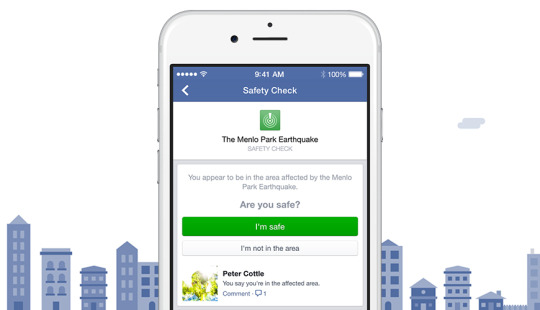
Well, luckily Facebook has also developed their own forms of crisis management. They have also gotten on board with the hashtag feature, similar to Twitter and have developed a Safety Check method, where users are able to mark that they’re safe to reassure family and friends on their Facebook account, who may have any concerns with their well-being after the disaster and will then be notified that they are okay and safe.
As well as that, Facebook have also introduced a crisis management technique which makes people constantly able to access links to Aid websites, to promote donations and be able to help countries who have been affected and who may need the help or as much as they can get. In example, when the Typhoon struck the Philippines or when Japan was hit with the massive 8.4 Earthquake and Tsunami, Facebook had ads shared onto the top of everyones Facebook newsfeed asking for donations.
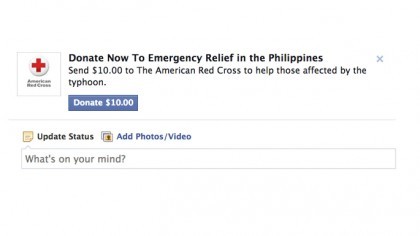
Below is a great video I found that pretty much sums up how social media has been helpful in these times of need and in what ways.
youtube
Sources:
Cowling, D. (2017). Social Media Statistics Australia – January 2017. [online] Socialmedianews.com.au. Available at: https://www.socialmedianews.com.au/social-media-statistics-australia-january-2017/ [Accessed 21 May 2017].
Creighton, D. (2016). Queensland's 2011 floods by the numbers. [online] Brisbane Times. Available at: http://www.brisbanetimes.com.au/queensland/queensland-floods-2011-the-floods-by-the-numbers-20160112-gm4czk.html [Accessed 21 May 2017].
Executive Summary: ‘#qldfloods and @QPSMedia: Crisis Communication on Twitter in the 2011 South East Queensland Floods’, pp 7-10. Bruns, A., Burgess, J., Crawford, K., Shaw, F. (2012)
3 notes
·
View notes
Text
This was really interesting to read! I definitely agree that the use of social media can be a great help especially when it comes to public health awareness. If you look at my WK 6 post, I spoke about the ALS Ice Bucket challenge and how people use social media as a trend and can ultimately disregard what actual affect or cause they are supporting but nonetheless the ALS Ice Bucket Challenge still went viral and supposedly raised around $115 million dollars which is insanely successful!
Week 9: Social Media Keeps me Alive
Often topics that are connected to social media surprise me, even after studying it for two years. So when public health was a topic we were set to study I was intrigued. What could possibly be so important in regards to health and social media that we had a whole week to cover it? Well, it turns out a lot. How does social media and public health even connect you ask? Well, public health uses social media to support sufferers of illness, health promotion and increase of the spread of information. One of the most interesting interactions between social media and public health to me is how it acts as a support system. I have experienced this myself. As a Type 1 Diabetic I was a part of a private Facebook page full of other Diabetics. I was a part of this group for roughly a year and it was full of information, questions, answers, articles and discussion. The page was run very smoothly and everyone on the page used it to support one another.
During the 2014 Ebola outbreak, one of the main factors that made information on the situation spread quickly was the use of social media. Information was able to be spread globally through the use of social media so that people could protect themselves and find out if they were in danger without having to wait for other media outlets such as TV news to spread the information. This use of social media could be the difference between life and death.
Although there are a lot of positives of social media use in relation to public health, there is also a few risks. Misinformation can be spread online from individuals pretending to be health professionals, this can become dangerous as people believe the misinformation they hear and it spreads before it can be corrected. Privacy can also be an issue, especially in “private” health support groups on Facebook.
Health campaigns are now often run through social media as a cheaper and more modern approach. One example of this is the “Love Your Sister” campaign, run by Samuel Johnson, Australian TV personality, in order to raise funds for cancer research. Samuel began the campaign in 2012 to support his sisters long battle with cancer. The campaign runs only through social media, mostly on Facebook where it was launched. Their social media spreads information about fundraisers such as Samuel’s 2014 ride around Australia on a unicycle which raised $1.75 million in funds.
Social media is a powerful tool, especially when it comes to public health. Although it’s been a useful tool, I believe it is also important that we take care with social media and health, ensuring that guidelines are followed and information and privacy is kept safe.
Love You Sister:
https://www.facebook.com/loveyoursister/
Prezi Link to Presentation:
http://prezi.com/ftg7jpixyqyt/?utm_campaign=share&utm_medium=copy
3 notes
·
View notes
Text
WK 7 Digital Citizenship and Trolling
Okay, Trolls. Personally, hands down, the worst people you can find on the internet. What sort of personal gratification or gain do they get from being a waste of time and a bother? IDK, couldn't tell you.
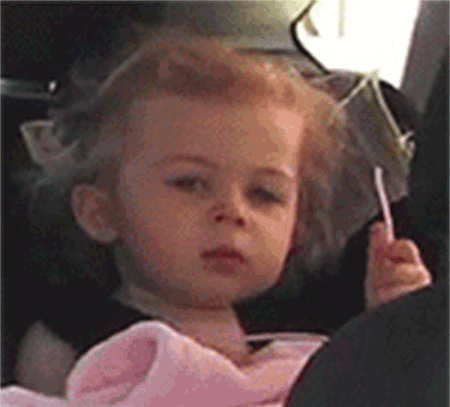
Although many of us will just take trolls as they come and deal with their unnecessary comments with an eye-roll, a number of internet users actually take them seriously and are personally affected by trolls.
In a survey done on approximately 1,500 teenagers it was found that "one in four teenagers suffered hate incidents" (Gani, 2017) and with the survey of these teenagers it was found that "24% had been targeted due to their gender, sexual orientation, race, religion, disability or transgender identity" (Gani, 2017).
Why do people troll? Well, in a cleverly made video done by the Youtube channel AsapSCIENCE they clearly and concisely explain their reason behind the 'science of trolling'.
youtube
The issue of trolling spans over the world, to almost all countries even in their own type of way. In 2016 a situation was made public about a woman in Britain, Suzanne Fernandes, who was “targeted online with racial abuse, pornography and death threats” (Laville, 2016) and even after “126 crime reports to the British Police” no long lasting actions had been taken even though she had been told she had “10 days to live” or explicit pictures of pornography would be sent to her. She described this as “the worst time of her life” (Laville, 2016). In response to situations like this, Australia has taken preventative action, and the government has developed the Office of the Children’s safety commissioner, this site claims the role of “helping young people have safe, positive experiences online and encouraging behavioural change, where a generation of Australian children act responsibly online” (Office of the Children's eSafety Commissioner, 2017). This is definitely a step in the right direction as it is is simply teaching and encouraging minors, (who are commonly known as vulnerable and susceptible internet users) how to behave on the internet and prevent them from doing things that they may have long lasting negative effects.
Sources Cited:
Gani, A. (2017). Internet trolling: quarter of teenagers suffered online abuse last year. [online] the Guardian. Available at: https://www.theguardian.com/uk-news/2016/feb/09/internet-trolling-teenagers-online-abuse-hate-cyberbullying[Accessed 9 Feb. 2016].
Laville, S., Wong, J. and Hunt, E. (2016). The women abandoned to their online abusers. [online] the Guardian. Available at: https://www.theguardian.com/technology/2016/apr/11/women-online-abuse-threat-racist [Accessed 8 May 2017].
Office of the Children's eSafety Commissioner. (2017). Role of the Office. [online] Available at: https://www.esafety.gov.au/about-the-office/role-of-the-office [Accessed 8 May 2017].
2 notes
·
View notes
Text
WK 6 Social Activism Post
“Social activism is an intentional action with the goal about bring social change.” (Amherst College, 2017).
A number of us believe that we ourselves aren’t as socially active and try our best to be, but ultimately most of us simply use social media accounts to justify ourselves. Does anyone remember the ALS ice bucket challenge? Filming and posting it online?
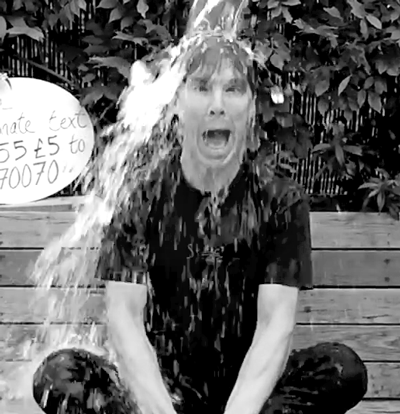
According to a study in the UK, approximately over “half of the Brits polled did not donate to the ALS charity after taking part in an Ice Bucket Challenge” and approximately 53% of them simply “didn’t know how to donate”. (Saul, 2014) Although similar challenges that go viral, still do more than great and do have everlasting effects like bringing attention to a cause and still considerably increases the number of donations, it’s how the internet and social media as a whole uses these to different viral social trends as a personal social gratification to assure themselves that they are good people, what is the issue.
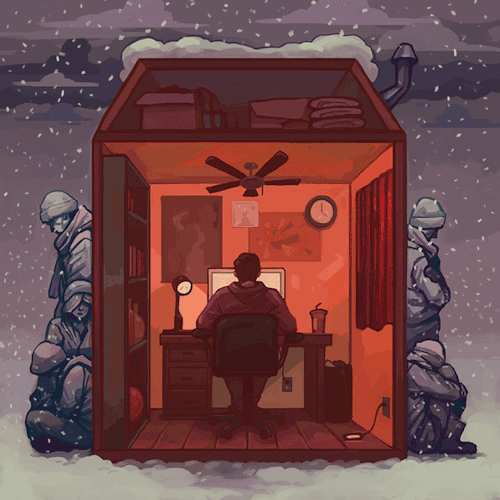
A particular trend in today’s day and age is the use of the ‘hashtag’. These hashtags have originally been made popular and known by Twitter and has recently been adopted by Facebook as well. This has been a detrimental feature to the new idea of “Clicktivism” which is the technical term for when people “use their social media accounts to advance social causes.” (Techopedia, 2017) The ALS ice bucket challenge would probably not have been as successful in going viral as it did, without the use of the ‘hashtag’ feature.
From this there have been other situations that have branched from social activism and it’s relation to social media. On social media, everyone has a voice, and in all realness, the forums and opinions you read on the social issues around the world, are probably the most truthful and unstructured form of news you, as the average Joe, will ever get, as major news sites and articles commonly structure their information to be able to get a response or a reaction from their audiences. Although the opinions and comments you read on social media sites and on the recent hashtag trends, may be biased and one sided, many people will have different opinions and reading them on these sites will allow you to form your own personal opinion, and not be brainwashed by these certain major news sites.
Sources Cited:
Amherst College. (2017). Social Activism. [online] Available at: https://www.amherst.edu/campuslife/careers/amherst-careers-in/government-nonprofit/picareers/careers/social_activism [Accessed 15 Apr. 2017].
Saul, H. (2014). ALS ice bucket challenge: Over half of Brits polled did not donate to. [online] The Independent. Available at: http://www.independent.co.uk/news/uk/home-news/als-ice-bucket-challenge-over-half-of-brits-polled-did-not-donate-to-charity-afterwards-9696690.html [Accessed 15 Apr. 2017].
Techopedia.com. (2017). What is Clicktivism? - Definition from Techopedia. [online] Available at: https://www.techopedia.com/definition/28184/clicktivism [Accessed 16 Apr. 2017].
1 note
·
View note
Text
Wk 5 Politics and the Media
Politics.
Not the main topic of conversation for many around the world. However, when combined with social media, somehow it attracts the attention of many.
Popular US Presidents like Barack Obama or Donald Trump have particularly gotten into the usage of social media, with Obama even being declared the “first social media President” (Bogost, 2017).

Obama was particularly involved in the usage of social media in comparison to the other candidates in the 2008 US Elections. This interest in social media had given him a common bond or an advantage (some would say) with his younger voters around the ages of 18 to 29, who are commonly known to being frequent social media users. Of the entire American internet population, for the 2008 US elections “74% of them went online to take part in or to get information about the campaign ” (Young, 2010)
With Facebook, Obama had become the first President to use Facebook live and reach all of his internet audience through the live feature and allowing users to give a live opinion on what the President said. As well as that Obama had taken advantage of his Twitter account by posting tweets under his initials and in 2012 became the first president to respond to questions under the hashtag #AskObama, both creating a more personal relationship with his Twitter followers, especially around the time of the 2012 campaigning period.
Alternatively, current US President, Donald Trump had used his social media accounts in a much more controversial way. To many, it’s when he posts things, where he posts it and what underlying message he has that usually draws the anger and frustration from his followers. The amount of times Trump has shared his unforgettable opinion on gun control shortly after the numerous shootings across America, is simply cut, a clear example of how he can completely disregard planning when he should share his particular views.

Bogost, I. (2017). Obama Was Too Good at Social Media. [online] The Atlantic. Available at: https://www.theatlantic.com/technology/archive/2017/01/did-america-need-a-social-media-president/512405/ [Accessed 2 Apr. 2017].
Young, S. ed., (2010). In: How Australia Decides: Election Reporting and the Media, 1st ed. Cambridge: Cambridge University Press, p.204.
2 notes
·
View notes
Text
Wk 1-4 Is Tumblr a blog or a social networking site?
Okay, so, to me Tumblr is simply just Tumblr, and I personally use it to find funny memes and quickly re-blog them. Wait, so, with that if I’m ‘re-blogging’, that means it's pretty much a blog right? But then again I do occasionally use it to message other blogs, like their posts and share them, similar to what I do on Facebook and Twitter. Sooo what is it?

Hmm, I guess I personally couldn’t say it’s specifically either of them, but something like a mixture of both.
Blogging can be described as “a website consisting of entries appearing in reverse chronological order with the most recent entry appearing first.” (Gunelius, 2017) While this is true, I feel that Tumblr is more personal and comes with much more detail and effort from the blogger, as a “blog consists of more than just words and images” (Rettberg, 2013) it includes the layout and it’s own personal visual composition.
The ‘correct’ definition of a blog could be shaped and defined in a majority of social media sites, all in their own unique way. In example, a site like Instagram could arguably be seen as a blog as it also, consists of entries (in a form of image and video) in chronological order, or a site like Twitter where you’re asked “What’s happening?” or on Facebook where users are greeted with “What’s on your mind?”, allowing and suggesting users to post a personal entry to which then goes to their chronological “timeline”.

All in all, I’d argue that Tumblr is both a social media site and a blog, and as well is Facebook, Twitter and the majority of today’s mainstream apps.
References:
Gunelius, S. (2017). What is a Blog - An Introduction to Blogging Terms and Definitions. [online] Lifewire. Available at: https://www.lifewire.com/what-is-a-blog-3476707 [Accessed 2 Feb. 2017].
Rettberg, J. (2013). Blogging. 1st ed. Hoboken: Wiley, p.5.
1 note
·
View note

